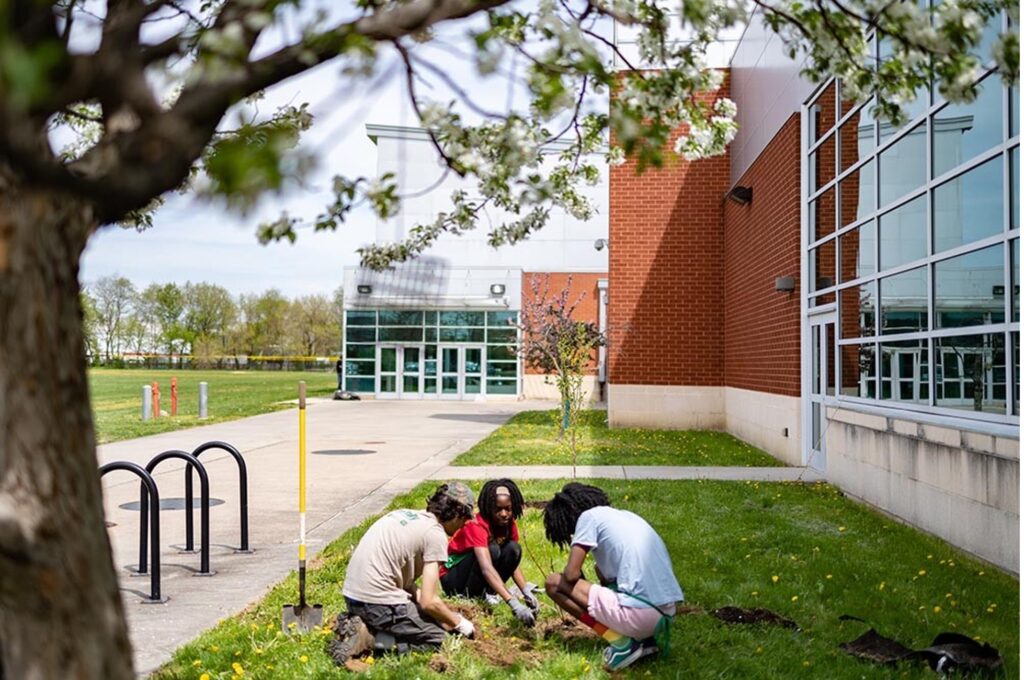5 Ways to Be an Engaged Citizen (Besides Voting)
January 5, 2024
Share

On Monday, January 15, we observe MLK Day – the only federal holiday designated as a National Day of Service to encourage all Americans to volunteer to improve their communities. Throughout this month we’re reflecting on Dr. King’s life and what it means to be an empowered citizen – civically well-informed, productively engaged for the common good, and hopeful about the future of democracy .
We define being “productively engaged for the common good” as actively participating in your community and being able to work with all kinds of people without fear or contempt to craft solutions to common problems. Civic engagement goes beyond the ballot box and can mean volunteering, joining community groups, or participating in the public square. The settings vary from classrooms to out-of-school organizations, communities, digital spaces, families, and religious institutions.
To support and cultivate the next generation of engaged citizens, adults must model what this looks like. But what does a lifetime of civic participation entail? Here are five ways all of us can strengthen connections to our communities – and each other – while upholding Dr. King’s legacy.
Mentor or volunteer
From community gardens to 4-H, food banks, and animal shelters, there are so many ways to give back that align with causes you are passionate about or enable you to share your talents with others. Like our Civic Spring Fellows who receive funding and mentorship to effect change in their communities, everyone can identify a local need and make a difference through meaningful service. Volunteers and mentors derive personal fulfillment from their contributions and in building ties with community members, including those across generations.
Listen thoughtfully to people who don’t think like you and don’t agree with you, and also seek common ground.
Get to know your neighbors! Become an active member of community associations and digital spaces like Facebook community groups. Immerse yourself in local history and culture by exploring historical landmarks and museums. Celebrate diversity at multicultural events and religious festivities that are open to those of all backgrounds, such as Juneteenth, PRIDE parades, Holi, and the Feast of St. Anthony. Above all, cultivate empathy and understanding of those who are different from you.
Support small businesses
If your neighborhood hosts a farmers market, acquaint yourself with the vendors behind each stall and support locally-grown produce. Small businesses are important pillars of a community and shape what makes a town or city unique. These entrepreneurs are often good stewards, holding fundraisers or sponsoring community groups and events. By patronizing these establishments, you contribute to a thriving local economy and improved quality of life for all residents.
Know how your government works
Familiarize yourself with your elected representatives and actively participate in civic discourse. Attend city council sessions, community forums, or board of education meetings. Stay updated by supporting regional news outlets and increasing your civic knowledge through community assets like libraries and independent bookstores. These venues frequently organize book clubs that foster discussions with neighbors and help to enrich your perspective.
Get involved!
Join local clubs or organizations that not only strengthen the community fabric but also help you pursue your interests or faith traditions. Sign up for a recreational sports league, attend hobbyist gatherings, or become a member of a congregation. Consider running for public office, volunteering for a political campaign, or initiating grassroots movements to address pressing community needs.
Participating in any of these activities helps shape attitudes important in a democracy, such as a sense of civic duty, concern for the welfare of others, and commitment to trustworthiness and bridge-building. Hope for our democracy’s future lies in each of us connecting and engaging with our fellow citizens, just as Dr. King envisioned an equal and more just America.
Related: Everyone’s a Civics TeacherLike this content and want more?
Sign up for our newsletter for ideas and tips to become a more productively engaged citizen.
SubscribeStay Engaged
Get More News
Join our mailing list to get more news like this to your mailbox.
Support Our Work
Help us invest in the talent, ideas, and networks that will develop young people as effective, lifelong citizens.
Ways to Support Us